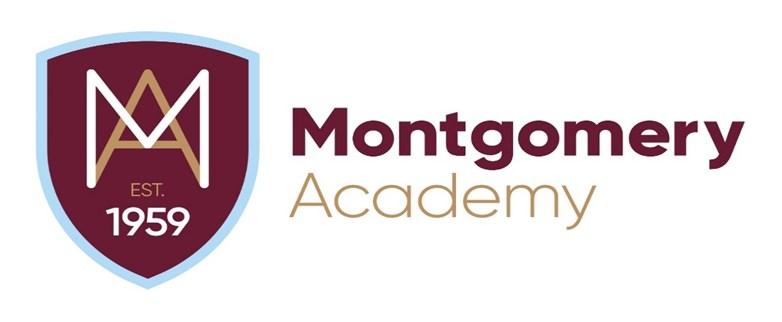
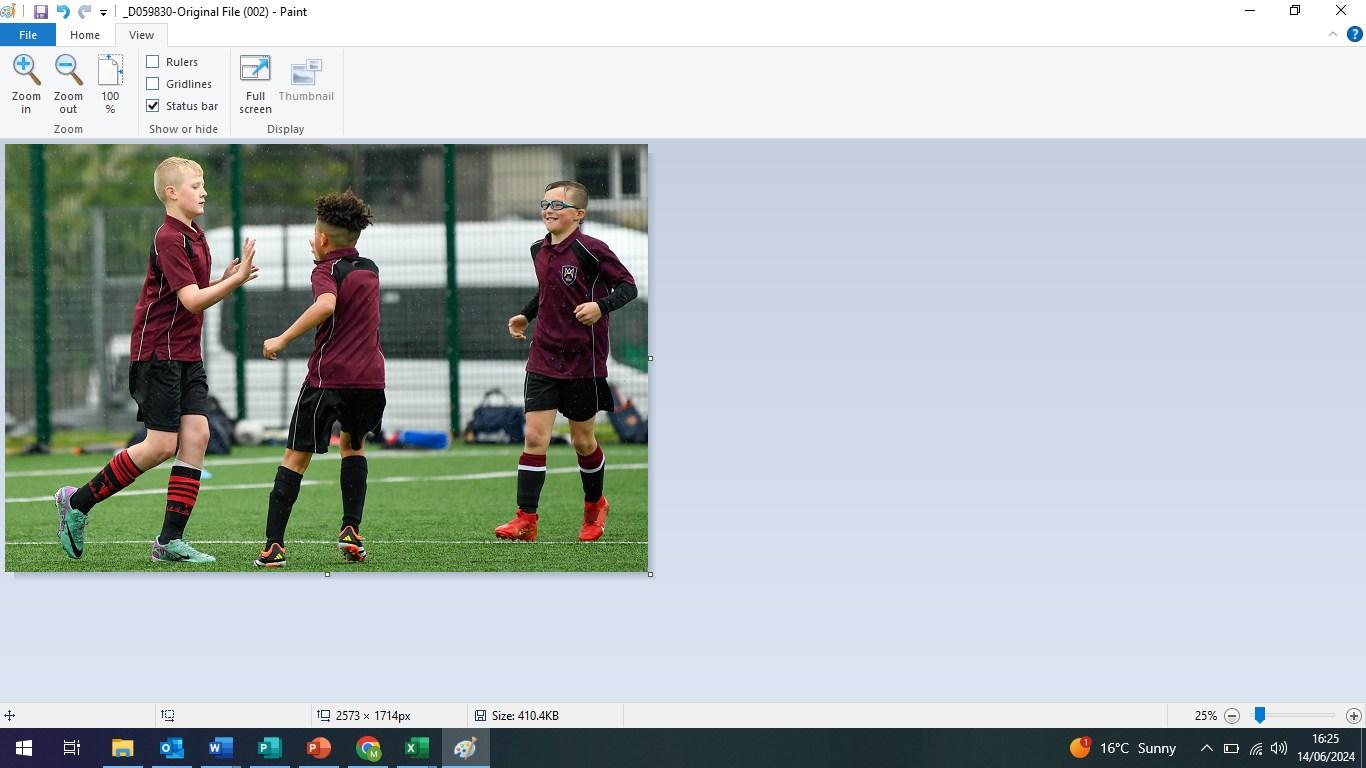








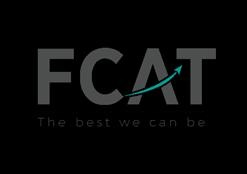



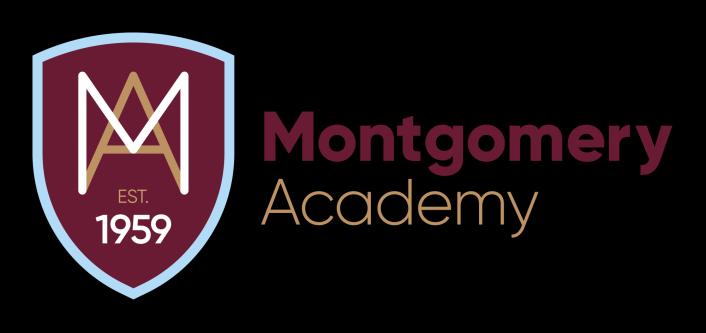





















As the Year 7 team at Montgomery, we hope that the move from primary to secondary school will be a very exciting and important time in your child’s life. This transition marks a significant milestone, bringing changes in expectations regarding important life skills. Especially in current times, we are more aware than ever of the paramount importance of a smooth, successful, and safe transition.
Starting secondary school involves adjusting to a variety of changes and new experiences, many of which require skills and abilities that students may not have previously used. These skills do not always spontaneously develop during the summer holidays before joining us at Montgomery, and this is where we, as a team, can help.
We understand that families are keen to help reassure their children, prepare them for these changes, and support them in developing the necessary skills. According to studies, the primary concerns students have when joining secondary school are:
• Not making friends
• Being bullied / relationships with older students
• Finding their way around
• Homework
• Not being able to do the work
• Travel to and from school (especially if involving a bus journey)
• Not having the correct books and equipment
• Not knowing what to do if there’s a problem
The top two worries are social concerns expressed by Year 6 children. Although these are common before transition, the vast majority of children report that these are no longer worries after just one or two days at Montgomery!
It is important to emphasise to your children that if they feel anxious, they will not be the only ones, and we hope that excitement outweighs any anxieties. With more students in Year 7 at Montgomery than in Year 6 at their respective primary schools, everyone will have an extensive choice of friends and the opportunity to make new ones. Primary teachers and families have supported us this year in arranging tutor groups, ensuring that everyone has at least one familiar face within their group often many more. The Year 7 Pastoral Team and teaching staff are always available to discuss any concerns, give advice, and answer questions.
Remaining worries are nearly all related to new organisational demands. Together, we can help you support your child in achieving independence while guiding them along the way. We hope to run a New Parents Information Evening in September to share further information with you, which we will communicate with you at the start of the next academic year.
When students start with us, we will place much emphasis on emotional well-being, building a sense of belonging, and supporting students back into their learning journey. We will provide access to a ClassCharts personal account to assist with independent organisation, allowing students to check homework and due dates. Parents will also have a login to access the ClassCharts system, which shows all homework set and your child’s progress. Each morning, time will be spent with Progress Tutors to promote a positive start to the day, including discussing the day ahead, checking uniform and equipment, reviewing news of the week, monitoring attendance, achievements, and more. We also have a successful daily reading scheme led by the Progress Tutor following the Tutor Time session.
At Montgomery, we place a high focus on punctuality and attendance. Previous years' results show a direct correlation between attendance and academic achievement, particularly at GCSE level. While GCSEs may seem far off, it is crucial to instil and aim for the highest possible attendance and punctuality from the start. Consequently, we cannot authorise holidays during school time.
Establishing good habits of work and independence early on is an investment that will save time, battles, and heartache in the long run. The routines and habits students establish in Year 7 will stay with them throughout their schooling and often into their working lives. It is worth making the effort to get it right at the start rather than correcting issues later.
In preparation, students could practice their journey to and from school, making a packed lunch, learning to tie a tie, or packing a school bag. These tasks will prepare them well for the move to Montgomery Academy.
We have included various documents that we believe are instrumental in ensuring the success of the young people in our care. Please feel free to contact us at school if you have any questions or require more information. We look forward to working with you and your family in the future. The Year 7 Pastoral Team
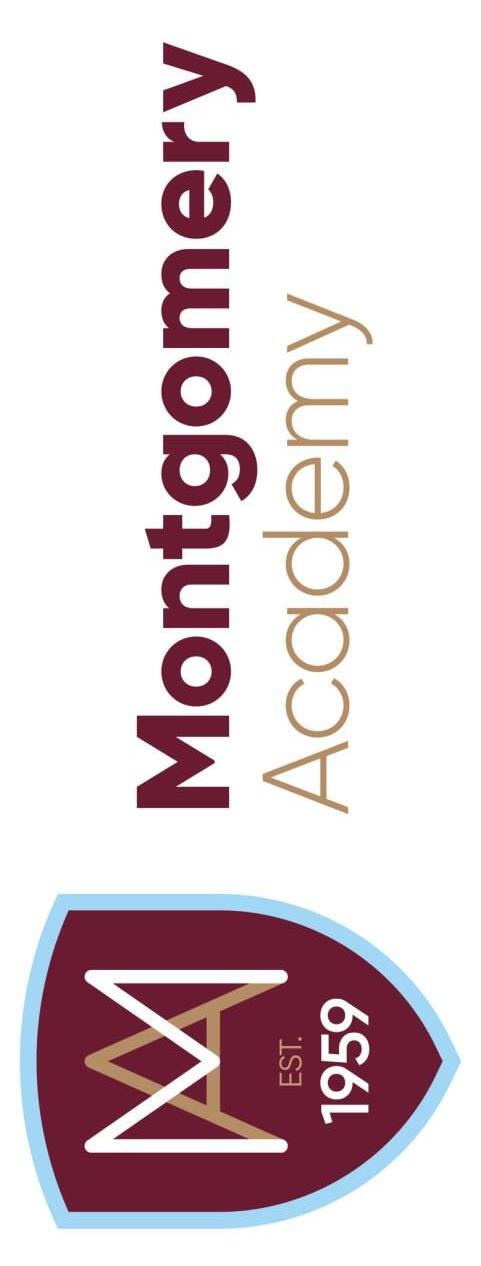





Year 7
Science Gates open 8:40am Reg/Reading 8:45-9:15
Period 1 9:15-10:15
Period 2 10:15-11:35 Break 10:45-11:05
Period 3 11:35-12:30
Period 4 12:30-2:00 Lunch 1:00-1:30
Period 5 2:00-3:00
Extra-curricular clubs (optional) 3:00-4:00pm







Communication with Parents and Carers: When we will get in touch with you and how we will do it
Letters: All letters will be sent in paper format as well as electronically. We also publish all letters on our school website for reference. We will send you a text message to make you aware of new letters.
Text Messages: General information will be shared with you via our text messaging system, MCAS via BromCom.
MyChildAtSchool (MCAS): At Montgomery, we use MCAS to keep parents and carers informed. MCAS allows you to view your child’s attendance, timetable, behaviour, and rewards, as well as receive school updates and important messages. You’ll also be able to access reports and make online payments for things like meals and school trips. Login details will be provided once your child joins us, and we recommend downloading the MCAS app to stay connected.
Class Charts: Weekly E-badges are awarded through Class Charts. Parents can track attendance to lessons, positive and negative behaviour and see all homework that has been set.
Telephone: Teachers, your child’s tutor or their Progress Manager will contact via telephone to talk about your child’s progress or their attitude to learning. Reception staff will contact you via telephone if your child becomes unwell during the school day. We will always use the phone numbers in the order of priority the phone numbers appear on your child’s application form.
Email: Please ensure an up-to-date and active email address is stored on our system. To ensure you receive all communication from us you must let us know if you are moving house, changing your phone number or email address.
Postcards: Our teachers will regularly send postcards home to reward students’ achievements
Twitter: We regularly update our Twitter feed to share news and updates. Our Twitter feed can be viewed on the homepage of our website or you can follow us using the handle @MontgomeryFCAT.
On occasion we may request you attend a meeting. All meetings will focus on your child’s attitude to learning. If you would like to arrange a meeting with your child’s Progress Tutor, Progress Manager, Pastoral Manager or class teacher, please call reception or email admin@montgomery.fcat.org.uk . The relevant member of staff will contact you to arrange and appointment.
When to contact us:
• If your child is going to be absent because they are ill: Phone the attendance line or email attendance@montgomery.fcat.org.uk between 07:30 – 08:30am.
• You are thinking about taking your child out of school for example, a holiday during term time
• Your child has an appointment that is during the school day which cannot be rearranged
• There are changes to your child’s circumstances that may affect their work
• You have any worries that your child might be being bullied
• You are having problems with our cashless catering system or if your child has any problems buying food at break or lunchtime
• Your child has any medical conditions we need to know about
• You are worried about your child’s progress, their lessons or homework
• Your child is finding the work in lessons too difficult
• Your child is having to look after someone else in the family
• There are any problems with your child’s uniform
• Your child has lost something
• You would like to speak to a teacher or make an appointment to meet one




Pastoral support is always available at Montgomery. Your child’s wellbeing is our number one priority. A students first point of contact if they have a concern is their progress tutor. This is the person that your child will see everyday.
The Year 7 team are below:
Progress Manager of Year 7: Mrs K King
Pastoral Manager: Mr S Higgs
7KLL Ms K Elliott S7
7SJA Mr S James S9
7RRO Miss R Robinson S2
7JSI Mr J Sinnett S6
7LTA Mrs L Taylor S1
7DMC Mr D McNiven S3
7NRY Miss N Ryan S5
7RED Mrs R Edwards / Miss C Robertson S4
If your child has an issue they can speak to any member of staff. All students have a Pastoral Manager, this person is responsible for supporting your childs’ behaviour, attendance and wellbeing. Your childs’ Pastoral Manager is not a teacher and therefore has time to support students throughout the school day. In addition to this, each year group has a Progress Manager, who supports your childs’ progress and wellbeing.
If you have ever have any concerns, please do not hesitate to contact your childs’ progress tutor and pastoral manager, they are there to support you!



As an educational institution we have a responsibility for safeguarding the young people in our care, and it is our duty to prevent and protect those young people from maltreatment or harm. Everyone who comes into contact with young people has a role to play in preventing the impairment of their health or development, ensuring they can grow and develop in an environment which is safe and provides them with the best possible chance of success. Montgomery Academy is a member of the FCAT Safeguarding Board, a forum of governor and staff representatives from each of the FCAT academies. For more information please see www.fcat.org.uk/about-us/Safeguarding
Our safeguarding team shown here are an additional level of support for our young people. Please contact them if you have any safeguarding concerns regarding any young person at Montgomery.





The Montgomery Academy uniform plays a key role in promoting the ethos of the school, it provides a sense of belonging and identity and sets an appropriate tone for education and learning. Montgomery Academy believes very strongly in a policy of full school uniform for all students in Years 7 to 11 and maintaining the very highest standards of dress and appearance appropriate to the workplace. These standards will be best achieved by the full commitment of all students, staff, parents and governors to the following agreed principles and practices:
Main Uniform:
• All students will be expected to wear full school uniform from the beginning of term and at all times when involved in school business, including on journeys to and from school.
• All clothing and other items should be clearly marked with the student’s name. Labelling must be durable for washing and cleaning purposes. The school has no legal liability for lost or stolen clothing or other items of equipment.
• Montgomery Academy maroon blazer with logo.
• White school shirt with school tie of the year colour (open necked blouses and polo shirts are not allowed).
• Either black full length regulation school trousers (joggers and leggings are not acceptable) or a Montgomery Academy skirt (skirts should be no more than 2 inches or 5cm above the floor when kneeling down).
• Plain black school socks OR plain opaque black tights (No leg warmers or leggings).
• Sturdy black school shoes – not trainers (No white/coloured soles, no stripes, no piping, no logos, no boots, no backless shoes or sandals). A student wearing other footwear for medical reasons should provide a doctor’s note. WE REGRET THAT A LETTER FROM PARENTS IS NOT ACCEPTABLE.
If a student is not in correct footwear, then they will be expected to borrow some black shoes from our standards room.
• Outdoor clothing is not to be worn inside the dining rooms or classrooms.
• Hoodies are not allowed in school and should not be worn instead of a suitable outdoor coat.
• Students will need an adequate school bag to carry exercise books, A4 folders, P.E. kit and equipment at all times.
Jewellery
At Montgomery Academy, we have the following expectations with regards to jewellery:
• 1 pair of small, plain gold or silver coloured studs (ear lobes only)
• 1 wristwatch (excluding exams)
• No facial piercings (including nose, lip, tongue or eyebrow piercings)
• No rings or bracelets
• No necklaces
• No temporary plastic/see through piercings or retainers
• No covering plasters
Make up
Makeup must be minimal and natural with false/fake eyelashes prohibited. Any students not conforming to this will be asked to remove their make-up.
Nails
The following items are also not acceptable in any circumstance:
• False/fake nails (e.g., acrylic, gel nails)
• Nail varnish
Hair
Hairstyles must be suitable for the academy environment.
• If hair is dyed, hair must appear natural with no bright and/or unnatural colours used. Students must also have no streaks in their hair.
• Tramlines or shaved head designs are not acceptable.
• Plain simple hair bands or hair slides (no flowers/ no scarves).
• Hijabs should be plain, black or maroon.
Non Compliance: Adhering to our school uniform policy is a crucial aspect of maintaining a positive and disciplined learning environment. Students have the opportunity during the morning fire lines to correct any uniform issues, with the full support of their progress tutors. However, it's important to be clear that consistent non-compliance will have consequences. Any student not adhering to the uniform expectations will receive an incorrect uniform consequence mark on ClassCharts Accumulating three incorrect uniform marks in a single day will result in a same-day, one-hour after-school detention. Our aim is to ensure all students are presentable and ready to learn, and we appreciate your cooperation in upholding these standards.
If a uniform is lost, stolen or damaged or if a parent is having financial difficulties, it is important that Montgomery Academy is made aware of such circumstances so that due consideration can be given to what has happened. Such matters will of course be treated with due discretion.
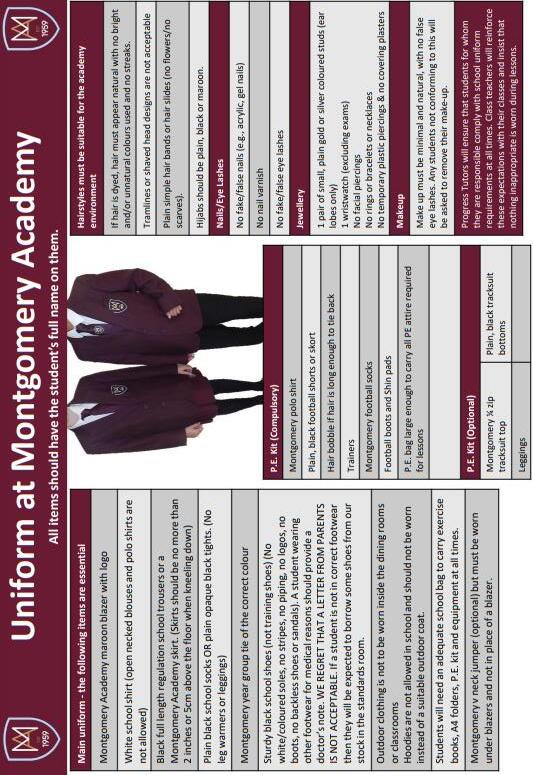






Behaviour Management Strategy
These procedures support an ethos based on shared aims and mutual respect where boundaries are clearly defined and where the individuals feel valued. These procedures reflect the fact that there are aspects of behaviour, which can be taught, and that in general the use of praise and rewards and the opportunities in the curriculum have a great effect in motivating students.
A huge emphasis is placed at Montgomery Academy on encouraging positive behaviour. Everyone, staff and students, are aware of the necessity and benefits of working together to ensure a calm, ordered, secure and happy environment. We recognise that the vast majority of students contribute positively to an environment in which effective learning can take place. However, there are students who, despite help, support and encouragement, do not respect this ethos and seek to disrupt the learning of others. In such cases it becomes necessary to take decisive action, to involve parents and impose sanctions.
Another way of tackling poor behaviour is to use language in positive terms so that you are not focussing on one individual’s behaviour when everyone else is behaving appropriately.
Positive Reinforcement Strategies
Class Teacher should:
• Praise and encourage
• Give Ambition Points
• Give postcards
• Make positive phone calls home
• Positive marking
• Have displays
Subject Leader/Curriculum Area Leader / Progress Manager and Pastoral Manager should:
• Communicate with parents – letters / phone calls
• Assemblies
• Give verbal praise
• Give Ambition Points
• Use Montgomery Way corridor to celebrate achievement and effort
• Give curriculum area / year group rewards
Recognising and Rewarding Positive Behaviour
• Weekly recognition of effort in lesson through the awarding of Ambition Points 1= Engagement in lesson, 2 = Outstanding engagement in lessons, these can be seen using ClassCharts by staff, students and parents. Students also receive positive points for engagement in extra curricular activities.
• Rewards are graded weekly using an e-badge, Bronze (4-5), Silver(6-7), Gold (8-10)and Diamond (11+)- Students and parents receive a notification at 4pm each Friday on the ClassCharts app to inform them of the weeks engagement activity, these are accrued each week to show a running total of reward e-badges.
• A weekly e-certificate is also emailed to parents to share the students engagement levels from the week, bronze, silver, gold and diamond.
• The reward store has been put into place where students can redeem their points for prizes and make donations to their house charity.
• Students receive reward notifications at each milestone to reward students for their progress (100, 200, 300, 400, etc)
• Pastoral managers are also encouraged to send postcards at these milestones too.
• Top 10 Ambition point students are shared each week in year group specific assemblies
• Termly Celebration Assemblies celebrate the success of students' attendance and top ambition points in school both individually and collectively as house/tutor groups.



Ambition points are awarded on a weekly basis and can be given in the following ways:
• Monty Way Engagement
• Outstanding Engagement (including homework)
• Intervention attendance
• Extra-curricular involvement
• Intervention
All ambition points are recorded on ClassCharts, which families including students will have access to, to monitor their child’s attendance, behaviour, homework and ambition points. This allows for all stakeholders, including families and staff to work productively and positively together to promote our ambitious ethos within the school community.
Ambition points can then be transferred into prizes, such as stationery sets, Amazon gift vouchers or donating your converted points to the house charity.
At the end of each term we do celebrate students’ achievements and reward those with the most ambition points or achieving over a certain threshold to receive their badges to represent this significant accomplishment.
ClassCharts log in details will be issued at the start of the academic year for students and families to have access to the online platform.




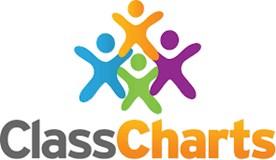
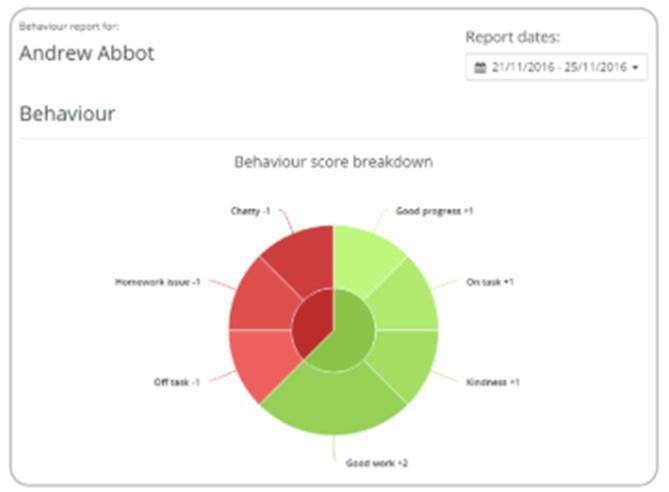

At Montgomery, we believe that high levels of effort lead to success. We encourage every student to strive for an effort score of 5 in each subject. However, an average effort score of 3.75% across all subjects studied leads to rewards at the end of the academic year. Effort scores are reported twice per academic year, in line with assessments conducted in half term 2 and half term 5. The effort criteria is outlined below:
3 Homework completed (may be after deadline or not to standard) Pays attention. Good effort with all tasks attempted Asks for support
2 Homework submission variable Inconsistent effort with tasks Variable standard of work and focus
1 Most homework not completed or done to a poor standard Little/no work done in class
Lacks focus and appropriate attitude to learning
0 Very Poor effort




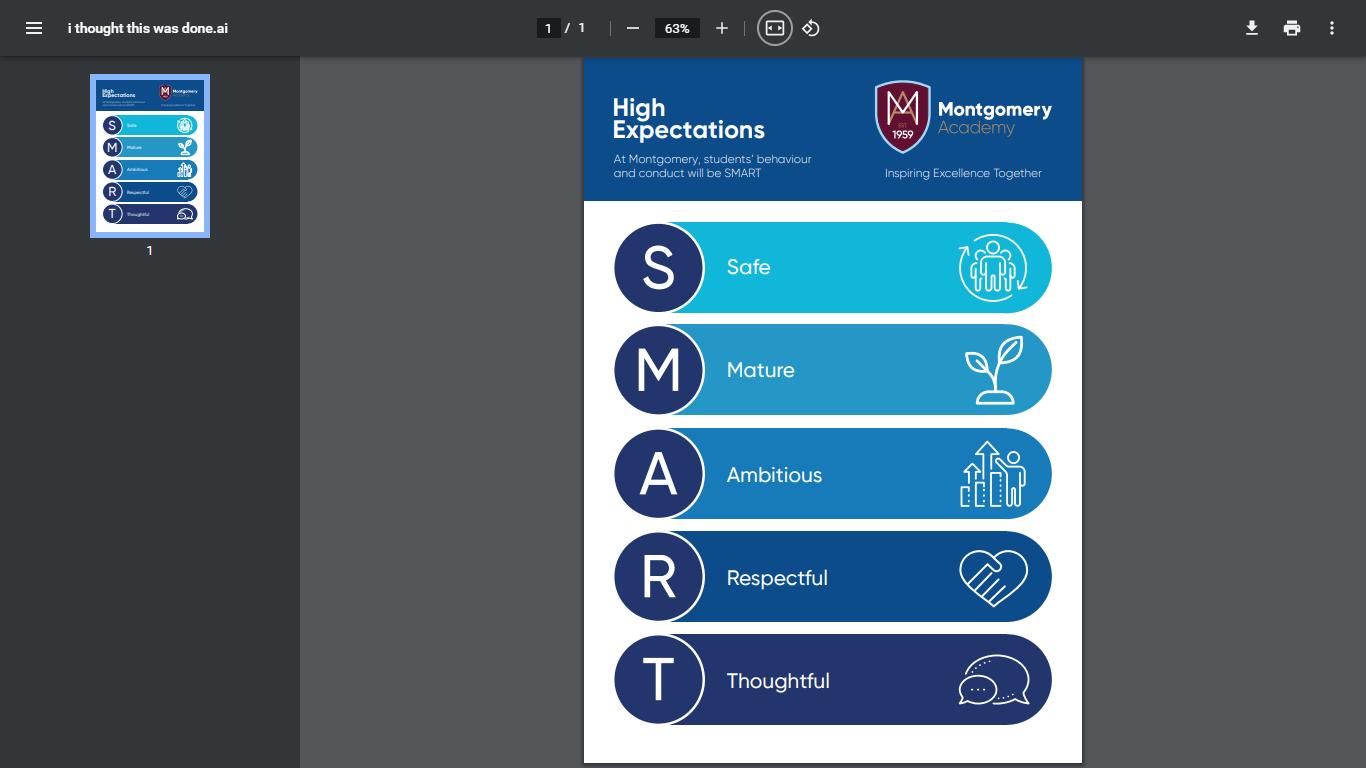
SMART should be used by staff in conversations about behaviour between themselves and students. Students must be regularly reminded about SMART conduct.
As a consequence of these qualities our expectation for each student is that they
• grow as a person
• be a positive and active member of our school community
• be a lifelong learner with a love of reading
• be able to work well independently and interdependently
• be employable
• be the best they can in whatever they choose to do
All these qualities will help them achieve excellence now and in their future lives.



EXCEL became our approach to quality first teaching in 2018: we have since embedded and evolved this approach.
All students will be provided with an Entry Task allowing them to engage with their learning as soon as they arrive to the class. The purpose of this task is to build on the recap upon the knowledge and skills learnt in the previous lesson and identify any gaps in learning. This task will last approximately 5 minutes and will be followed up with a quick Q&A session to check for understanding.
Students are then provided with a Challenge Question (CQ). The purpose of the lesson is to provide students with the knowledge and skills to be able to respond to the CQ by the close of the lesson/series of lessons, usually working independently at this stage to show their understanding of the knowledge and skills learned. To assist students in their learning (and to do the CQ), staff work hard to explain the learning as clearly as possible and to support this with questions and modelling of what success ‘looks like’.

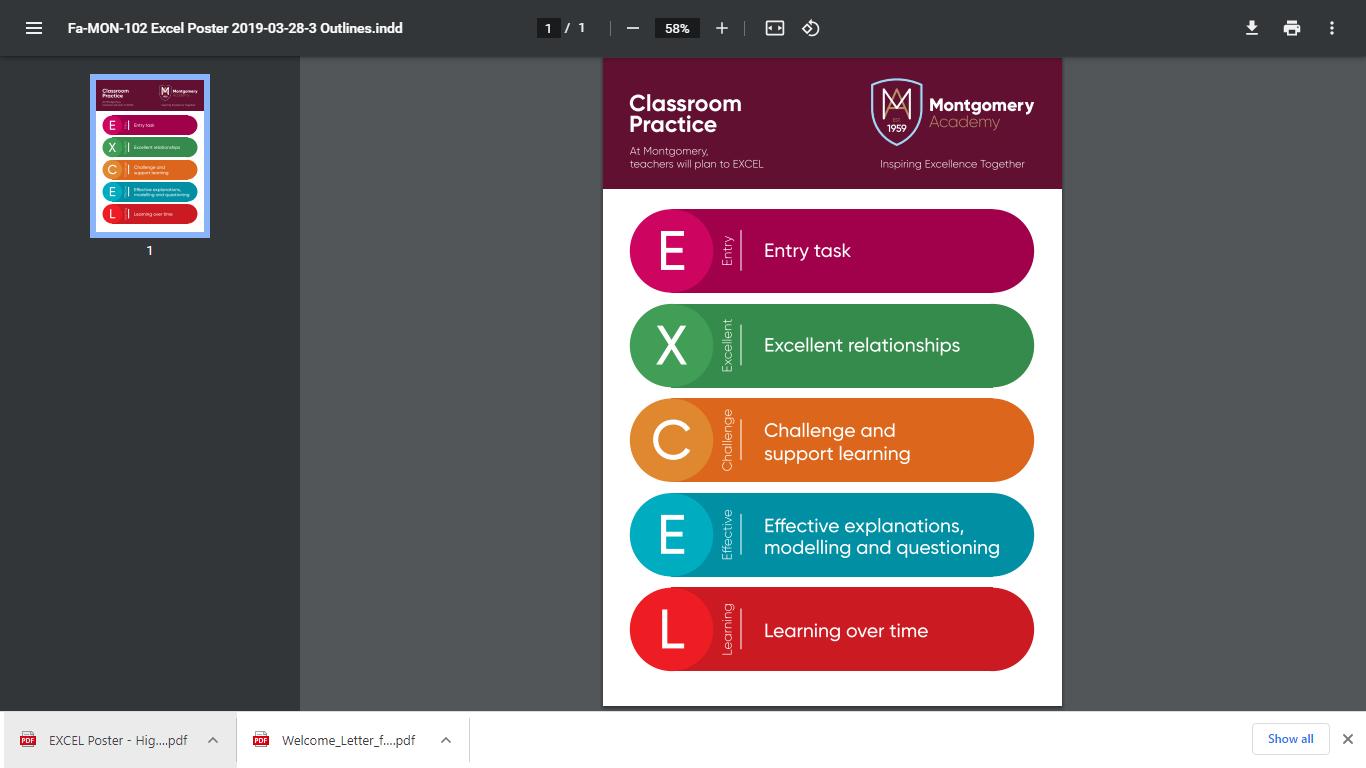
As part of your commitment to supporting academic progress and building independent learners, we have introduced Application Time into our curriculum.
Application Time provides students with a calm, silent environment in which they complete a set task that demonstrates their knowledge and skills. These sessions are carefully planned and occur in a controlled manner, with preparation time built into the curriculum to ensure students feel confident and ready.
The purpose of Application Time is to:
• Promote independence and resilience in learning
• Prepare students for formal assessments and GCSE exams
• Help students develop focus and stamina during quiet working conditions
This structured approach encourages students to apply what they’ve learned independently an important skill that supports long-term success throughout their time at Montgomery and beyond.
Staff will provide feedback and see how students are progressing, providing Next Steps advice. Key pieces of work will then be followed by LIFT feedback where sufficient lesson time will be provided so students can respond to advice: ‘Learning over Time’ is supported in this way. We also endeavour to provide as much immediate feedback in the lesson as possible to rectify any misconceptions/errors as soon as possible through cold calling, circulating with purpose and whole class checking for understanding.







A variety of assessment methods are used at regular intervals to help students develop as independent learners, raise motivation and to provide feedback on effort, progress and to give advice on how to improve further.
Formative assessment
This type of assessment is completed in class and will be low students are remembering the key skills and knowledge that they are being taught currently, or, in the case of Entry Tasks, what they have been taught in previous schemes. Regular knowledge checks will provide the teacher with the information needed to either move on with the learning or whether any areas need re learning and /or address any misconceptions.
Summative assessment
These are less frequent and will assess what the students know from across a sample of the knowledge and skills that will have been taught to date, including learning from previous years, where relevant to their learning journey. This type of assessment will be completed twice in an academic year and will be used to inform reports to parents.
Observation
Some tasks or skills are assessed through observing students when they are working and are receiving verbal feedback. This may be especially true in practical lessons and in areas such as PE, design and technology, languages and expressive arts.
Peer and self-assessment
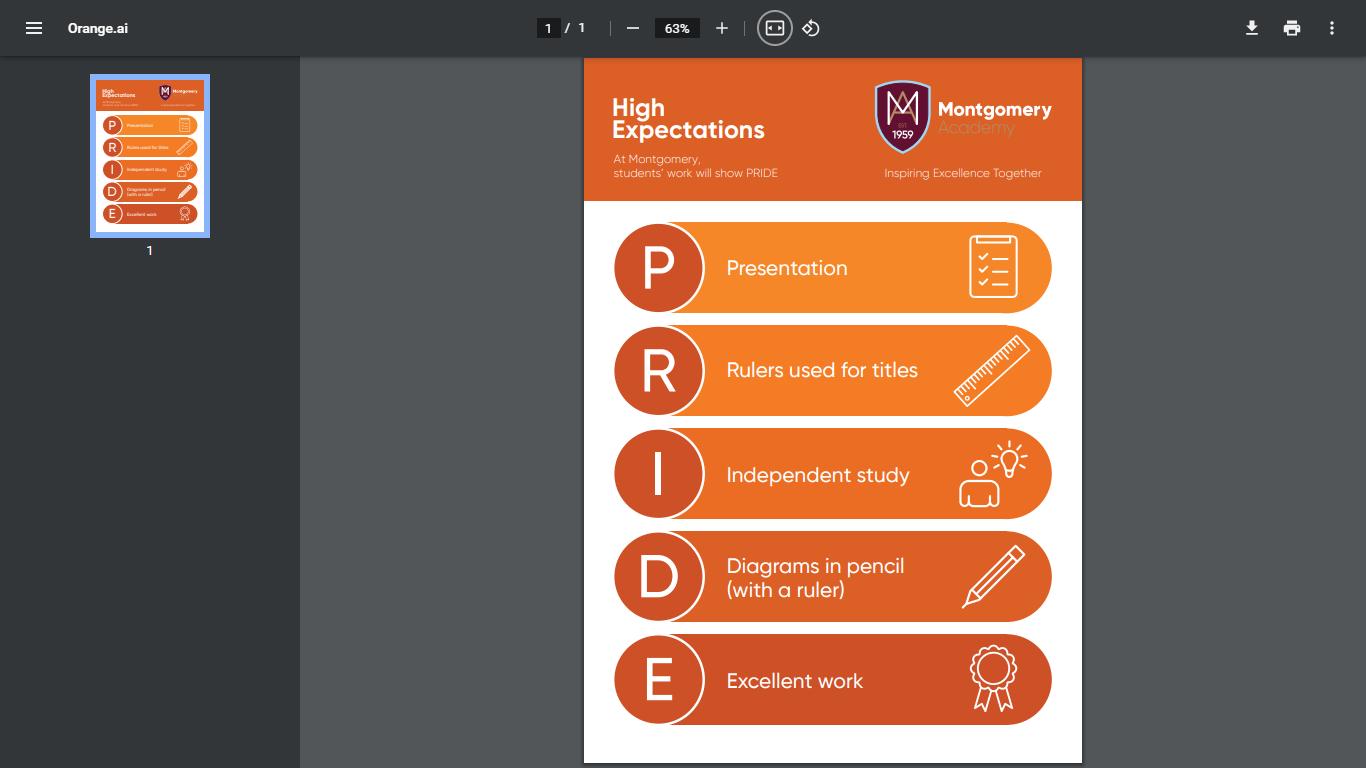
Students mark work using clear guidelines. They learn how to develop the skills of reporting back on their own and each other’s work, giving each other encouragement and sharing ideas on how to improve their work.
Checking
This is to check that a piece/s of work is accurate e.g. for answers to CQs/class notes/homework. Teachers use their time in class to respond and do ’live marking’ to ensure feedback written/verbal) is more immediate.



Homework tasks are designed to rehearse previously taught skills or reinforce content. Homework is checked by the teacher or self or peer assessed. All your child’s homework will be recorded on Class Charts, as we move away from the more traditional school planner. Parents should be supporting their child by ensuring they check Class Charts homework daily and ensure all deadlines are met and that work is of a high standard. Through this next academic year we will also be providing students with knowledge organisers: a page dedicated to the key knowledge (and skills) required per scheme of work. The information on these pages will form part of both homework tasks (to remember the knowledge) and be assessed in the knowledge checks.



Students are required to bring the correct equipment to school every day. All students should be equipped with the following:
• 2x Pens (Black/Blue)
• Pencil
• Green Pen
• Ruler
• Highlighter
• Rubber
• Pencil Case
• Scientific calculator- Casio FX-83GT-CW or Casio fx-85GT-CW




Montgomery Academy is committed to providing a full and efficient educational experience to all students. We believe that if students are to benefit from education, punctuality and good attendance is crucial. As an Academy, we will organise and do all we can to ensure maximum attendance for all students. Any problems that impede punctuality and regular attendance will be identified and addressed as soon as possible.
Student Responsibilities:
Aim for 100% attendance, be punctual to tutor time and lessons. Students should be in school 5 minutes before their start time for a prompt start.
Recipe for success:-
• Only stay at home if you are genuinely ill
• Avoid taking holidays in school time
• Get organised the night before and get enough sleep
• Talk to your parents about school and how you feel about it
• Talk to someone if something is bothering you you are not alone we are here to help you.
It is important that we help our young people to get into the good habits that they will need in the work place. Excellent attendance and punctuality are essential in their future employment and we regularly receive requests from potential employers for references regarding attendance and punctuality.
Students who develop a poor pattern of attendance and punctuality will be monitored by our Attendance Team and you may be invited into school for a meeting with the Attendance Manager, the Pupil Welfare Officer and/or a Senior Leader. As a parent, you are legally responsible for ensuring that your child attends school regularly and is punctual. If you fail to ensure this, you are committing an offence under the Education Act (1996) which may lead to a fine of up to £2500 and/or a prison sentence. You may also find yourself issued with a penalty notice.
Persistent Absence (PA) is classed as any absence that equates to over 10% of the academic year at any given time. Any student that appears on the persistence absence list may be monitored formally by the Pupil Welfare Officer.
Emergency First Aid:
Please note that Montgomery Academy operates an emergency first aid facility only. If a student is unwell or has an accident during school hours, they must follow the correct procedure and go to the main school reception who will give appropriate first aid and contact their Pastoral Manager. Parents will be contacted should your child be unable to continue their lessons. Please ensure your contact details are up-to-date.
A student sent home sick will have the remaining school session recorded as an authorised absence, but further absence from school should be covered by a telephone call by 8.30 am.
Absence
If your child is absent from school through illness you must ring or email the attendance team as early as possible from 7.308.30am. If your child is being monitored by the Attendance Team at Montgomery Academy or by the Pupil Welfare Service, medical verification must be provided in order for the absence to be authorised.
Telephone Email
Main Reception 01253 356271 admin@montgomery.fcat.org.uk
Attendance 01253 508583 attendance@montgomery.fcat.org.uk







If your child seems to be finding the work in lessons too challenging and much harder than their friends seem to be, you should contact a member of our SEND team.
If you receive any information from a GP or external specialist regarding your child’s learning needs, please book an appointment with one of the SEND team.
If we suspect that a child may have an undiagnosed SEN, the school will inform you of the necessary tests that will be started by the school. This may include, but will not be limited to:
• Meeting with external agencies
• Meeting with additional education specialists
• Observations within school



Our dining room provides food at breaks and lunchtimes. We serve a good variety of food and there is always a vegetarian option. As well as the option of a hot meal, we also sell sandwiches and baguettes. We have a cashless catering system and students use biometrics (thumbprints) to use the system. You can top your child’s account up through the MCAS app and there are also cash top up machines in the dining room which your child can use.
Our school payment system, MCAS accepts electronic payments for school visits, meals, school activities etc. MCAS offers you the choice to make payments whenever and wherever you like, 24 hours a day, 7 days a week – safe in the knowledge that the technology used is of the highest internet security available. You have a secure online account, activated using a unique username and password. You should receive a letter from school during the summer holidays with your username and password which will allow you to activate a MCAS account for your child at Montgomery.
If you have another child at school you will be able to merge the accounts together. If you do not receive the letter before the start of school please email finance@montgomery.fcat.org.uk
When you sign in you will be prompted to change your password to keep them safe and secure. Making a payment is straightforward and no card details are stored in any part of the system. Once you have activated your account you can make online payments straight away.



At Montgomery Academy students have the opportunity to get involved in numerous leadership roles; from Year 7 onwards students can take part in the very active student voice and discuss all aspects of academy life as well as raise money for local charities through our house charities.
House Captain roles are available for students in all years to provide opportunities to demonstrate responsibility and organisational skills.
Students can also become Transition Prefects, Peer Mentors, Reading Mentors, Sports Captains and Anti Bullying Ambassadors in all years.
In Year 10 students can apply to become part of the Senior Prefect Team, which includes Head Boy, Head Girl, Deputy Head Boy and Deputy Head Girl, which is often highly sought after.
By offering leadership roles and responsibilities to Montgomery students we are embedding the Academy ethos of ‘Inspiring excellence together’ as well as, enabling students to grow into confident, resilient and respectful young people.







At Montgomery we have two aspects of our student council. We have 5 year council teams which are made up of two students from each tutor group who are democratically elected to represent the views of all students, working together to make Montgomery Academy an even better school. From the year council- two students from each year group are selected to be part of the whole school council. The school council members meet to discuss many different aspects of school life and have a big say in how our school is run.
Elections for the School Council are held every year in the autumn term. At School Council election time, all students in school are invited to stand if they are interested. Students will need to prepare a short speech to persuade your tutor group to vote for you! Students can prepare a campaign poster or write notes to help you. Share with your tutor group all the reasons why you would make a great councillor – perhaps you are full of good ideas, a good listener, maybe you are good at organising events and enthusiastic about making Montgomery even better.
After you have shared your ideas with your class, everyone in your class will be asked to vote. The elections for the Year Council are a good example of democracy; this means everyone in your class has the chance to be involved in deciding who will be part of the year council, as everyone has a vote. We use a ballot box and votes are counted by the progress tutors. Our elections run just like the general election that decides who is in government for the country.



At Montgomery Academy we recognise the importance of education beyond the school day. We offer a range of clubs, activities and educational visits that provide something for every student.
The aim of our extra-curricular provision is to provide opportunities for students to extend their school experiences beyond the classroom. We aspire to provide a wide variety of extra-curricular activities designed to inspire, educate and physically motivate students. The extra-curricular activities are organised by enthusiastic and experienced teachers who aim to foster an enjoyable learning experience for all students. Some of our students’ favourites include; Football, Netball, Ukulele, Dissection Club and Debate Club. Students have the opportunity to request any clubs or activities that they would like to take part in and are welcome to be involved with as many clubs as they feel that they want to be a part of in order to get the most of a Montgomery Academy experience. Students have the opportunity to take part in the Duke of Edinburgh (DoE) award as they move through school. This is a nationally recognised award that builds confidence, resilience and team work – these are just some of the skills that students develop through taking part in the DoE award helping improve their educational progress and employability skills. At Montgomery Academy, we are always looking to promote learning outside of the classroom, which we believe is an essential part of personal development for all students. Educational school trips allow students to build a deeper understanding of a particular subject while working as part of a team on interactive tasks and hands-on projects.



Mobile phones are prohibited at Montgomery Academy. Students can have mobiles with them, however they must be switched off during the school day. If a mobile phone is seen or heard it will be confiscated and handed to the pastoral manager. Phones can then be collected at the end of the school day.
Students can speak to their pastoral manager or main school reception if they need to contact home.



The House System is designed to embody the values and ethos of the school and aims to be an integral part of our school community. The house captains will lead the house ambassadors’ to create a strong student voice to motivate students and further the community spirit of the school.
House System Objectives:
Our aim is to provide every student in each house with the following:
• a sense of belonging within the school community


• opportunities to develop social, intellectual, physical and practical skills
• a sense of achievement both inside and outside of the classroom
• fun and excitement through competition
• opportunities for leadership
• an awareness of individual and collective responsibility
Leadership Opportunities
The house competition is about participation and working together with students from all year groups. It provides students with opportunities to be a leader either by being a house ambassador or even taking responsibility to help lead a specific activity or event.
House Organisation
Students are assigned to one of the four houses on entrance to the school in Year 7 where they remain until the end of Year 11.
Each member of staff is also attached to a house. Each house has two designated House Ambassadors from each year group who will act as representatives for all the students in their house throughout the year by: helping co-ordinate house teams, organise activities and events and represent their house at relevant meetings.
How to earn house points: guidelines and information
Each House is in competition with each other to achieve the highest number of house points at the end of each term and most importantly by the end of the year when there will be prizes.
Regular house point totals will be advertised in tutor time each week, we also have a House totals token board to share each houses progress.
Students can contribute to their house point totals in a number of ways both in and out of the classroom. All students are expected to participate in at least one of the many house events/activities.
Weekly Challenges
Ambition Points- Students are awarded ambition points for effort and achievement in lessons. Each week house points will be rewarded to houses as follows:
• 1st place – 100 points
• 2nd place– 50 points
• 3rd place- 25 points
• 4th place- 10 points
Attendance- The average attendance for each week will be calculated. Each week house points will be rewarded to houses as follows:
• 1st place – 100 points
• 2nd place– 50 points
• 3rd place- 25 points
• 4th place- 10 points
House Challenges- Each week students will embark on a weekly challenge in which students will compete against each other to be rewarded weekly house points. Each week house points will be rewarded to houses as follows:
• 1st place – 100 points
• 2nd place– 50 points
• 3rd place- 25 points
• 4th place- 10 points
Academic Achievement- Students that make the Montgomery Way will be added to the house totals.
• Diamond students- 20 points (per student)
• Gold Students- 10 points (per student)
• Silver Students- 5 points (per student)
• Bronze Students- 2 points (per student)





Reading for pleasure is possibly the single-most important activity your child can do to improve achievement in school. Linked to this is the fact that reading is the best way to improve vocabulary, essential for success in every subject. Reading also has social and emotional benefits. It increases self-esteem and studies show that students who read are more empathetic. Growing up is tough - reading can help young people explore complex problems from the safe fictional world of a book.
The main issue, of course, is convincing young people of the importance and joy of reading. Here are some tactics that may encourage your child to read more:
• Find books with a connection to something they love or find the book version of a movie.
• Encourage them to use technology to read. All students have access to an E library with a range of Ebooks and audio books. It is also recommended that you encourage them to put the subtitles on when they are watching TV as this will help to improve their reading.
• Ask for a ‘Recommended Reads’ list: we have lists broken down by genre for Years 5/6/7; Years 7/8; and for Key Stage 4.
• Try Barrington Stoke books: these are produced with tinted pages, special fonts and spacing, thicker paper and editing to reduce comprehension barriers and/or issues resulting from dyslexia. There is a large range of dyslexia friendly books in our school library.
Montgomery is so passionate about reading that we have adjusted the timetable to ensure students are able to read with their form teacher for at least 20 minutes three times a week. During this time the progress tutor will read aloud to the class while the students follow the text. They will then be given the opportunity to explore the big ideas in the text and learn more about what it can teach us about the world. The books chosen for Year 7 are below. If they complete the book early they read tutor a selection of short stories and non include biography and autobiography.
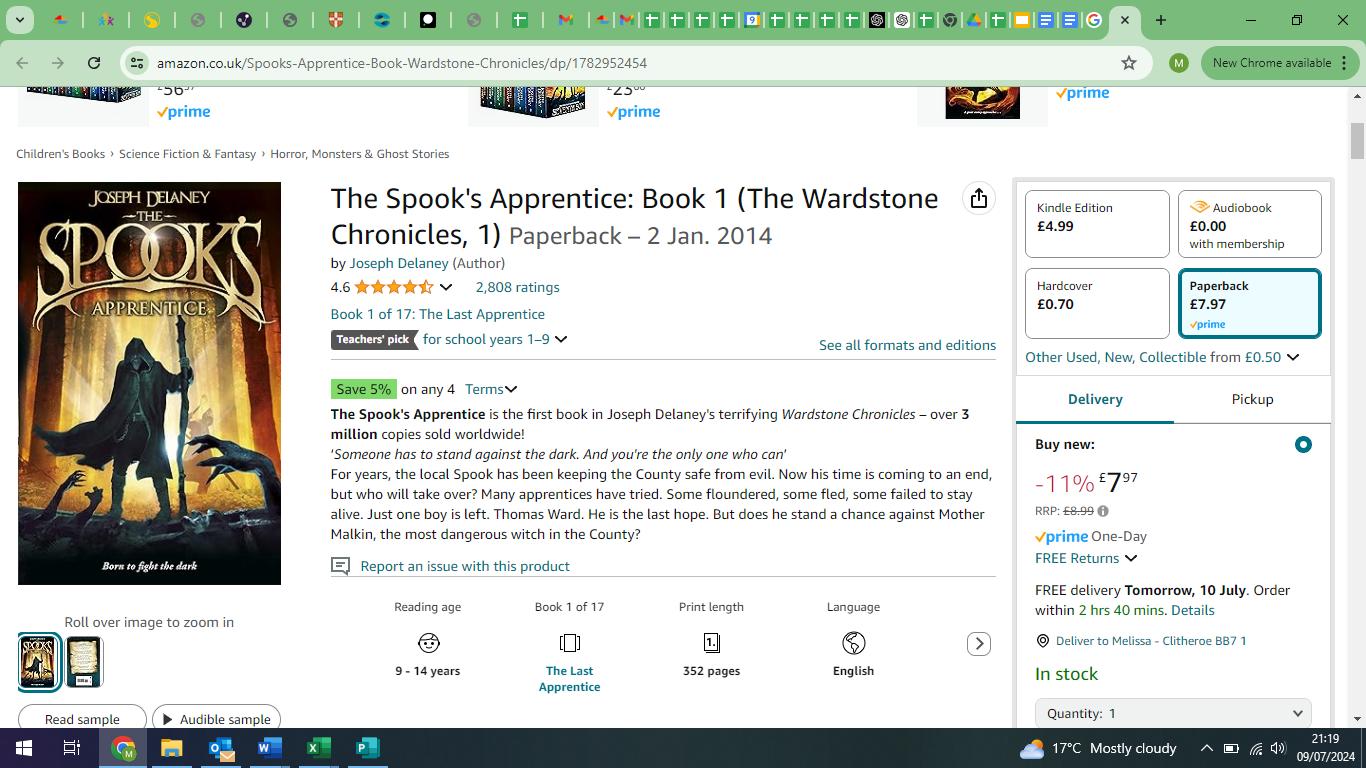




At Montgomery Academy, reading is at the heart of all learning. In school we use the Accelerated Reading Programme which allows students the freedom to choose their own books to read from our wonderful library. The Accelerated Reading Programme is based on the principle that practice makes perfect, Accelerated Reader is a computerised learning system designed to help teachers motivate, monitor and manage student reading practice.
All the books in our library are linked to the Accelerated Reading Library and are tailored to suit their individual reading needs and abilities of each student. After reading their books, our students are then quizzed on the book to establish their level of understanding.
In the first week of term, all year 7 students will complete a Star Reading Test which establishes their reading ranges. By doing this, students can then choose a book from our library which is suited to their individual reading range. Books within their reading range will contain new vocabulary that will challenge them without them becoming disengaged and frustrated.
The purpose of Accelerated Reader is to enable powerful reading practice. It does this by:
• providing data that helps us monitor and personalise reading practice.
• encouraging substantial amounts of practice, according to guidelines based on research findings.
• making practice fun for students by aiding successful encounters with text.
How Accelerated Reader works?
As a part of their English lessons, students are allocated a fortnightly library lesson. During the lesson students focus on reading independently a book of their choice. Once finished, the students can access the on-line quiz which, through a series of 5-10 comprehension style questions, determines their understanding of the book. After taking the quiz, the programme then adds a word count to the student’s account which accumulates over the academic year. In addition, each book a student reads and successfully completes a quiz on is also added to their account over the academic year.
As part of the English Homework, students will keep a record of their reading through the completion of a Reading Homework Log. This is something we request parents to regularly check as a way of monitoring their child’s reading and to encourage regular reading practice both at home and in school.
The library at Montgomery is a wonderful, comfortable and therapeutic resource, which students can use during break times, lunches and after school. The collection of Accelerated Reader books is growing all the time with new stock added weekly for students to enjoy.
We are very proud to have the C.O.B (Council of Books), a committee of students who oversee activities in the library and are a fundamental part of how it is organised. They support in choosing stock; keeping the room in tiptop condition; and are empowered to keep the space pleasant and inviting.
In 2022/23 we were trialling a new initiative which used a small team of therapy dogs to encourage and support students to read. The benefits of therapy dogs in the workplace are now well known as our furry friends work alongside us to improve our health and wellbeing.
The school has been training a group of dogs who will be able to work with students who are reluctant readers, as well as be used as a reward for those who have read well.
Next year we are going to extend the programme of activities included in the library after school with additional reading clubs and strategic and logic board game clubs. These will be in addition to continuing to provide a quiet space in which students can read and complete homework with support from the staff.
With its warm and welcoming feel, we look forward to you joining us in our library.






One of the biggest concern’s students have when moving to a new school is bullying. At Montgomery we have worked with our students and our parents to co-produce an effective anti-bullying strategy.
For three years we have worked with Headstart Blackpool and worked on the #BlackpoolBeatingBullying Charter Mark in a campaign led by youngsters to tackle bullying in schools. Montgomery are extremely proud to be the first school to achieve the bronze and silver awards.
To achieve the silver, we have worked through a list of action points and implemented them in the school. Students have been given a voice and we have used the charter mark to really make a difference. The charter mark involves all stakeholders in the school, governors, parents, staff and of course the students.
Bullying affects everyone, not just the bullies and the victims, it also affects those other students who watch, and less aggressive students can be drawn in by group pressure. No one person or group, should have to accept this type of behaviour.
At Montgomery we fully believe in a culture of being SMART- Safe, Mature, Ambitious, Respectful and Thoughtful. Only when all issues of bullying are addressed, will a student best be able to benefit from the opportunities available at the Academy and be the ‘best we can be’.
Bullying can occur through several types of anti-social behaviour. It can be:-
• PHYSICAL -A student can be physically punched, kicked, hit, spat at, etc.
• VERBAL -Verbal abuse can take the form of name calling. It may be directed towards gender, ethnic origin, physical/ social disability, or personality, etc.
• EXCLUSION -A student can be bullied simply by being excluded from discussions/activities, with those they believe to be their friends.
• DAMAGE TO PROPERTY OR THEFT -Students may have their property damaged or stolen. Physical threats may be used by the bully in order that the student hand over property to them.
WHAT CAN YOU DO IF YOU ARE BEING BULLIED?
Remember that your silence is the bully’s greatest weapon!
• Tell yourself that you do not deserve to be bullied, and that it is WRONG!
• Be proud of who you are. It is good to be individual.
• Try not to show that you are upset. It is hard but a bully thrives on someone’s fear.
• Stay with a group of friends/people. There is safety in numbers.
• Be assertive –walk confidently away. Go straight to a teacher or another member of staff.
• Fighting back may make things worse. If you feel like fighting back, talk to a teacher or parent/carer first.
• It is always best to tell an adult straight away. You will get immediate support.
Teachers will take you seriously and will deal with bullies in a way which will end the bullying and will not make things worse for you.
IF YOU KNOW SOMEONE IS BEING BULLIED:-
• TAKE ACTION! Report it to an anti-bullying ambassador or tell an adult IMMEDIATELY. Teachers have ways of dealing with the bully without getting you into trouble.
• DO NOT be, or pretend to be, friends with a bully.






At Montgomery we have a culture of zero tolerance to bullying. If you are the victim of bullying you need to share this information with a teacher, an anti-bullying ambassador, prefect, parent or any other responsible person who will be able to help you.
If you see bullying behaviour you also need to report this to a responsible person who can help, all students have a responsibility to protect other members of our community. There are many discreet ways to report bullying behaviour;
• You could tell an anti-bullying ambassador who have received training and will be able to help you take the next step or report it to an adult for you.
• You could tell any member of staff with whom you feel comfortable, whether this be a teacher, progress tutor, pastoral manager, one of the designated safeguarding team, the school nurse or a member of our support or admin team.
• You could send any member of staff an email through the school system if you feel uncomfortable approaching them directly.
• You could tell a parent or someone at home who can telephone the school and speak to either your progress tutor, your progress manager, a pastoral manager or any other member of staff on your behalf.
If bullying is reported, addressed and continues this must be reported again to staff at the academy who will take this very seriously.
The academy believes that online bullying is wrong. You will learn how to deal with this in assemblies and PSHRE lessons. If you find that you are the victim of online bullying you must report it immediately to the site provider, the police, anti-bullying ambassadors, prefects, teachers at the academy, parents or any other responsible adult who will be able to help you. Montgomery will advise all students/parents to also report any incidents of online bullying to the police, internet site or mobile technology provider. The academy will co-operate with the police or any outside agency in the investigation of cyber bullying in addition to action taken in school as appropriate.
AS A PARENT:-
a) Look for unusual behaviour in your children. For example, they may suddenly not wish to attend the academy, feel ill regularly, or not complete work to their normal standard.
b) Always take an active role in your child’s education. Enquire how their day has gone, who they have spent their time with, how lunchtime was spent etc.
c) If you feel your child may be a victim of bullying behaviour, inform the Montgomery IMMEDIATELY. Your complaint will be taken seriously and appropriate action will follow.
d) It is important that you advise your child not to fight back. It can make matters worse!
e) Tell your own son or daughter there is nothing wrong with him or her. It is not his or her fault that they are being bullied.
f) Make sure your child is fully aware of the Academy policy concerning bullying, and that they are not afraid to ask for help.
g) Parents can report bullying to any of the academy staff by telephone, appointment or email.
AS AN ACADEMY WE WILL:-
a) Use any opportunity to discuss aspects of bullying, and the appropriate way to behave towards each other, e.g. Through tutor time and assemblies and the implementation of SMART
b) Deal quickly, firmly and fairly with any complaints, involving parents where necessary.
c) Review the Academy Policy and its degree of success.
d) Montgomery staff will continue to have a firm but fair discipline structure. The rules are few, simple and easy to understand.
e) Not use teaching materials or equipment which gives a bad or negative view of any group because of their ethnic origin, sex, etc.
f) Encourage students to discuss how they get on with other people and to form positive attitudes towards other people. This includes a review of what friendship really is.
g) Encourage students to treat everyone with respect.
h) We will treat bullying as a serious offence and take every possible action to eradicate it from our Academy.
i) Support and encourage a group of identified anti-bullying ambassadors in striving to raise awareness and discuss ideas/ actions in relation to the anti-bullying policy.
j) Provide training and on-going support for student leaders who can support other students who may be victims of bullying behaviour. Students in leadership roles within school will have regular meetings to continually raise awareness of issues including anti-bullying.






If bullying is suspected we talk to the suspected victim, the suspected bully and any witnesses. If any degree of bullying is identified, the following action will be taken:-
Help and support will be given as is appropriate to both the victims and the bullies.
We support the victims in the following ways:
• By offering them an immediate opportunity to talk about the experience with their pastoral manager, progress tutor, or another teacher if they choose.
• Informing the victims’ parents/carers.
• By offering continuing support when they feel they need it.
• Arrange for them to be escorted to and from the Academy premises.
• Sessions with our pastoral managers, life coach, school counsellor or school nurse. This may be to support victims in developing or regaining confidence or self-esteem, or to help them to develop coping strategies.
In addition to any disciplinary action we would support students who display bullying behaviour in the following ways:
• By talking about what happened, to discover why they became involved.
• Informing the bullies’ parents/carers.
• By continuing to work with the bullies in order to get rid of prejudiced attitudes as far as possible in support sessions delivered by the academy pastoral managers.
• Students who display bullying behaviour will also have access to life coaches if required or a referral may be made to any external agency if appropriate.
• Students will complete the ‘Rethinking my behaviour’ booklet if the incidents escalate.
Dealing with incidents of bullying:
When incidents of bullying are picked up by staff, either directly or by the referral from the anti-bullying ambassadors, they should get the reporting students, whether victim or witness, to write a statement and pass this on to the pastoral manager. The pastoral manager will then take the lead on using available resources to fully investigate. (This may be done in conjunction with progress tutors or the progress manager for example).
Once it has been established that a bullying type incident has occurred the pastoral manager will work through the Montgomery intervention ladder to resolve the issue.
If you would like further information, please see a full copy of our anti-bullying policy; a copy will be available on our website or a hard copy is available on request from the Academy.
If you do have any comments or information that you would like to share with us, please contact Mrs E Cumming- Assistant Headteacher, Mr T Burns-Lead behaviour and attendance manager or your child’s progress manager, tutor or any member of the pastoral team.
Additional Help Sites:
Parents' Anti-Bullying Helpline Kidscape 08451 205 204, http://www.kidscape.org.uk/parents/ National anti-bullying helpline - Tel: 0845 22 55 787 http://nationalbullyinghelpline.co.uk/ Family Lives 0808 800 2222 http://www.bullying.co.uk/ Childline 0800 11 11 http://www.childline.org.uk/explore/bullying/pages/bullying.aspx






